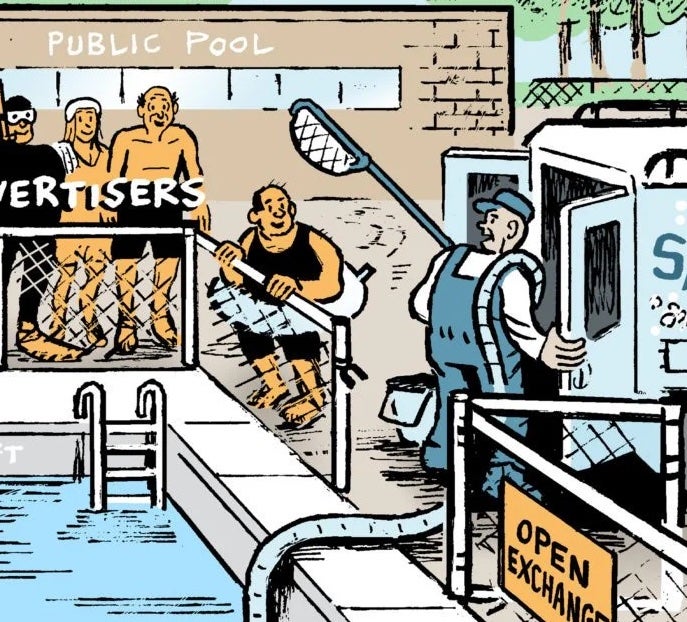Here’s today’s AdExchanger.com news round-up… Want it by email? Sign up here.
The Crusts Are Off
The growth of online groceries and retail media puts new pressure on false advertising.
It is not a coincidence that false advertising lawsuits have risen sharply.
For one thing, claims made on packages on a store shelf or in a TV commercial are taken seriously. In contrast, startup brands born online might use influencers, word of mouth, experiential marketing and data-driven DTC advertising – media channels where cereal and soda brands can loosely dub themselves sugar-free and nobody cares.
When advertisers plan their retail media budgets, they might reasonably target grocery keywords like “vegan” or “no sugar added,” even if their product is not vegan or adds sugar. Some retail media networks or products like PMax, which combines shopping and search within Google, might algorithmically optimize a brand into similar placements whether they choose to or not.
Relatedly, the Smucker’s-owned brand Uncrustables is suing Chubby, a rival selling crustless peanut butter and jelly pockets. Uncrustables isn’t suing for it being a copycat, but on false advertising and defamation claims.
According to the complaint, Chubby advertised itself as a healthier alternative with no added sugar and higher in protein, among other grocery-related keywords commonly used online.
Big Screened
Even for GoogleTube, there is a limit on the amount of CTV inventory the company can create.
Scratch that. If there is a limit, we haven’t scratched it.
Last week, Google confirmed a wide rollout of pause screen ads on YouTube. Brands love ’em, and you’re gonna see more of ’em.
Then there’s Google TV, the successor product to Chromecast. It creates a new vertical tab for a sports section, as well as new tiles on the home screen, reports 9to5Google. Google’s demo slide itself features a massive “House of the Dragon” promo.
And Google has a new search guide for Freeplay, its own ad-supported package of channels, to which it can now more effectively channel new viewers who prefer not to pay for streaming services.
All of these updates, including the pause screen ads, Google attributes to viewer experience improvements. It must be a coincidence, though, that the changes also create more inventory out of thin air, in some cases, and funnel viewers to places with more ads served by Google.
Spheres of Influence
Brands value social influencers for their authentic relationships with followers, fans, subscribers, etc.
But during election cycles – especially this one – marketers rank brand safety above authenticity, Digiday reports.
Advertisers are more adamant than ever that the influencers they work with forego posting political content until the election season wraps. For brands, that blackout period ends in January, which mirrors the Q4 priorities of consumer brands, not the actual election.
“This is actually the first time I’ve seen brands double down as much as they have” on these demands, says Brittany Bright, founder of The Influencer League, an educational platform for creators.
These demands are hindering lucrative brand deals between advertisers and creators. One social media influencer recently lost a deal after posting a picture with Vice President Kamala Harris, for example, while another warns that even political memes can land you in trouble.
Nowadays, creators have to choose between the two pillars of their livelihood: being authentic and making money.
But Wait, There’s More!
LinkedIn uses personal data to train AI – but who doesn’t? [Dataconomy]
Streaming services keep rolling out more of the same shows. [Marketing Brew]
Why Amazon is helping merchants sell on other sites. [The Information]










